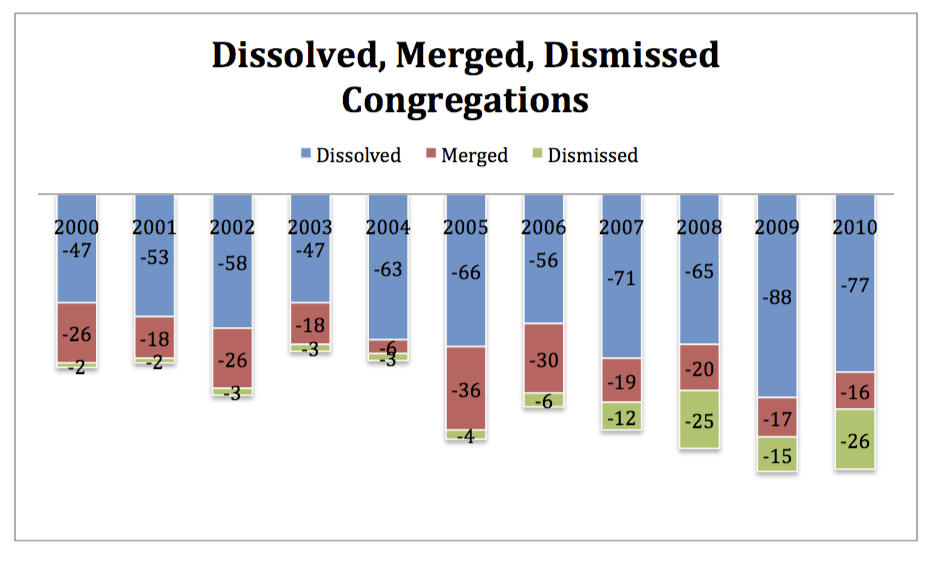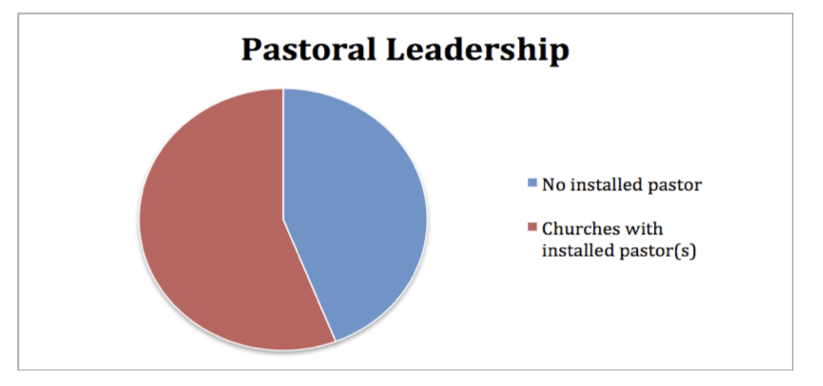The Rev. Carol Howard Merritt: Planning for a Vital Future
I'm chairing a committee that just finished its initial report for the national assembly of Presbyterian Church (U.S.A.). We were charged with making plans for our common future. Of course, these finding are from our denomination, but I think they're instructive for most mainline traditions.
We have lost an increasing number of congregations. In fact, in 2010, we lost almost 10 churches per month. Most of these congregations had good, long lives and ministries that we celebrate, and now they have come to end of their lifespan.

About 44% of our churches do not have installed pastoral leadership. Often, it's because they cannot afford to hire a pastor. They rely on (usually retired) laypeople or retired pastors. Sadly, this also means that about 4,650 jobs have been cut, along with the downsizing of many of our associate pastor positions.

Why are we losing congregations? There are many factors. If I'm painting with a broad brush, I'd say that it is because we are largely rural, white, and older.
Geography. We planted rural churches, and now our economy has shifted from an agrarian society. Most young people need to leave their rural area for education or jobs.
Race/ethnicity. While our general population has gotten more and more diverse, our denomination remains over 90% white.
Generational. I'm extremely proud of our denomination because of their strong adherence to the priesthood of all believers. Lay people have a great deal of authority in our structures. The downside is that the average age for Presbyterians is over 60. Because of the way that our governing bodies are structured, retired people run most of our committees and make our decisions. That means an emerging generation does not have much say over how, when, or where we worship.
I do not have anything against people who are over 60. I have been incredibly grateful for the intergenerational wisdom of the denominational church. But there are always limits to what we can do. Forgive a crass metaphor, but if you're creating a product for a young mother, then you won't be gathering a focus group of retired people to find out their opinions. But that's exactly what we do in our denominations.
In addition to relying on God's grace, what can we do to ensure a vital future? Focus on urban church planting.
How can we do that? There are many ways that we can go forward (and most of these suggestions go beyond what any committee could set forth).
Reinvest our resources into planting new congregations. As churches come to end of their lifespan, we can use the money in order to start new congregations and support immigrant fellowships.
Support innovative networks. I've helped to host Unco for the last two years. It's an ecumenical, open-space conversation about the future of the church. It's also an incubator for new ministries. And, after a couple of years dreaming together, I'm excited to see how many new communities and ministries slowly spring up from these relationships. Members have helped each other articulate ministry plans and form proposals to present to their governing bodies. We have become more strategic about where we serve in our denomination. In the years to come, I want to focus efforts into fundraising for these innovative ministries. I know there are many creative hubs out there. What can we do to support them?
Change our ideas of "church." Often a new community is not defined as a "church" until it's self-supporting. Other times our notions become tied to a building. In this great time of innovation ahead of us, we'll need to begin thinking about smaller, interdependent communities that thrive apart from the reliance on a building. We can celebrate new immigrant fellowships and recognize them as congregations before they become self-supporting (after all, 44% of our existing congregations would not meet the standards we set for new churches). ** **
Plant churches with a strong sense of social justice and mission. When we plant congegations, it will be important that we do not start them in order to serve the Institution, but we need to start them because we care for the community and long for justice and peace in our society.
Dissolved, dismissed and merged congregations (JPG, 220.29 KB)churches_without_an_installed_pastor.jpg (JPG, 71.5 KB)
[Taken with permission from Carol's Blog, Tribal Church, at ChristianCentury.org.]
